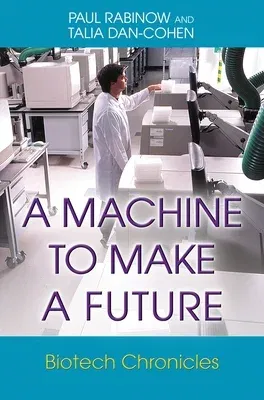A Machine to Make a Future represents a remarkably original look at
the present and possible future of biotechnology research in the wake of
the mapping of the human genome. The central tenet of Celera
Diagnostics--the California biotech company whose formative work during
2003 is the focus of the book--is that the emergent knowledge about the
genome, with its profound implications for human health, can now be
turned into a powerful diagnostic apparatus--one that will yield
breakthrough diagnostic and therapeutic products (and, potentially,
profit). Celera's efforts--assuming they succeed--may fundamentally
reshape the fabric of how health and health care are understood,
practiced, and managed.
Presenting a series of interviews with all of the key players in Celera
Diagnostics, Paul Rabinow and Talia Dan-Cohen open a fascinating window
on the complexity of corporate scientific innovation. This marks a
radical departure from other books on the biotech industry by
chronicling the vicissitudes of a project during a finite time period,
in the words of the actors themselves.
Ultimately, the authors conclude, Celera Diagnostics is engaged in a
future characterized not by geniuses and their celebrated discoveries
but by a largely anonymous and widely distributed profusion of data and
results--a "machine to make a future."
In their new afterword, Rabinow and Dan-Cohen revisit Celera Diagnostics
as its mighty machine grinds along, wondering, along with the
scientists, "what constitutes success and what constitutes failure?" The
pathos of the situation turns on how one poses the question as much as
how one answers it.

